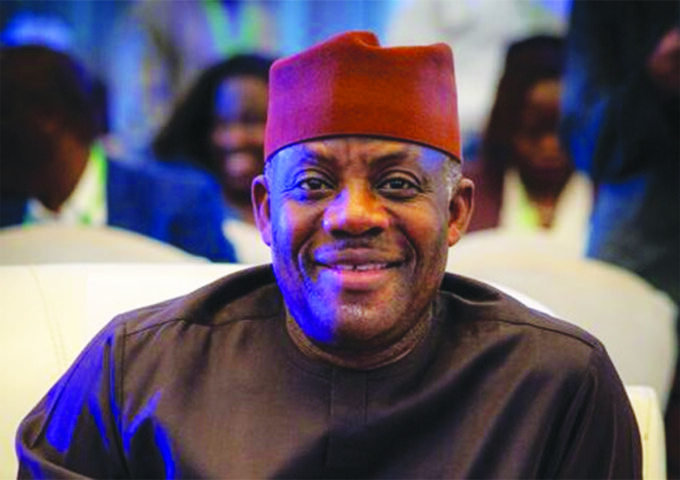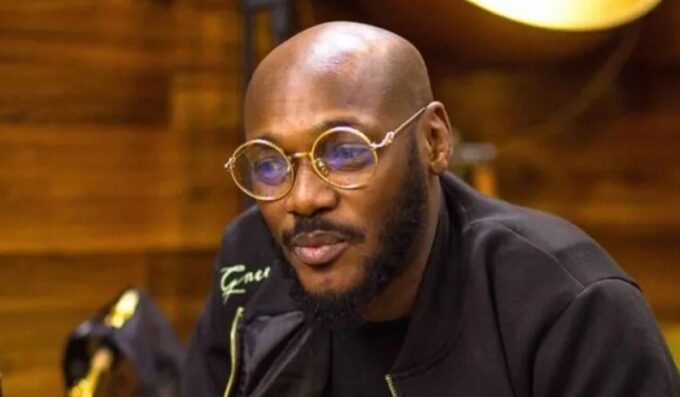By Oluseye Ojo
A Nollywood star, Bose Akinola, is the Governor of the Theatre Arts and Motion Pictures Producers Association of Nigeria (TAMPAN), Oyo State chapter.
With a career spanning decades, the thespian has established herself as a pillar of the Yoruba film industry.
In this interview, she opens up about her journey, challenges, and triumphs. She shares valuable insights into the world of Nollywood from her humble beginnings in Ibadan to her rise to fame.
What was your childhood like?
I grew up in Ibadan. After completing my secondary education, I joined my mother’s business, selling planks, at Bodija Market in Ibadan. I later got married to Mr. Akinola, and we have children and grandchildren.
Can you tell us about your journey into the Nollywood industry and what inspired you to become an actress?
My journey into Nollywood has not been an easy one and the only thing that inspired me to be an actress is my passion.
What was the big break that brought you fame, and how did you get into the acting industry?
My big break came when I featured in the movie, Idunnu Okan. I’ve always had a passion for acting, and my husband supported me in pursuing the dream. I started acting in 1997, and I’m grateful to those who helped me get into the industry, including Olusho Adeyinka, Kabikoss, Loveland, Alhaji Jare Shobaloju, Alhaji Akeem Ofale, and Alhaji Gbolagade Akinpelu.
Are there any roles you would refuse, no matter the pay?
I wouldn’t take on roles that would make my children ashamed. While actors should be versatile, I prioritise my family’s values.
What are some of your most memorable moments in your career?
One of my most memorable moments was my first trip abroad in 2008. It was a dream come true, and I attribute it to God’s blessings and my hard work.
As a prominent leader of actors and actresses in the South-west of Nigeria, what are some of the challenges you face in your role?
We thank God, actors and actresses in this side are ever supportive, which makes this role rewarding to an extent
How do you think the Yoruba film industry has evolved over the years, and what changes have you personally witnessed?
The Yoruba film has seen a lot of changes. We started as stage play, where we would go to schools and events to perform. Then, we moved to home videos. Now, we are everywhere. You can watch Yoruba movies on any streaming platform now and even, the big ones are going to the cinema to showcase. There are so many opportunities and avenues now to make money unlike before. The more you work hard now, the more money you make.
In your opinion, what distinguishes Yoruba films from other regional cinema in Nigeria?
Yoruba films are distinguished by their deep cultural roots and traditional themes. Also, nonlinear storytelling and poetic elements are parts of the qualities. They are also superb because they focus on domestic stories and moral lessons. One of the things that have made Yoruba movies unique is the incorporation of folklore and supernatural elements. High production values and global reach are also of premium qualities. These unique features set Yoruba films apart from other regional cinema in Nigeria.
Could you share some of your most memorable experiences or roles in Nollywood that have had a significant impact on your career?
There are many roles, but I will mention a few, like Amope Ajabiiji, Anike Olokopupo, Aderonke Aladiagbon, Arada Ekun, and so on.
What do you believe is the biggest misconception people have about actors and actresses in Nigeria?
Many think fame comes easily to actors, and they should be mega-rich. But the truth is, actors work hard, struggling like everyday people, driven by passion for their craft. Fame and fortune are just bonuses.
What was the most challenging role you’ve played?
All roles come with their unique challenges, but one role that still sends shivers down my spine is the time I had to act with a snake. It was a particularly daunting experience, as I’m not fond of reptiles, and the thought of being in close proximity to a snake made me anxious. The scene required me to interact with the snake in a way that would convey the emotions and intentions of the character. I recalled feeling a mix of fear and adrenaline as I prepared for the scene. However, with the guidance of the director and the support of my crew, I was able to push through my fears.
How important is collaboration among actors and filmmakers to the success of a film project?
Collaboration among actors and filmmakers is the only thing that makes a film project a success. An actor can be very talented but without dedicated filmmakers with a compelling storyline, good directing, excellent crew and other resources, the project will just end up being a regular.
What advice would you give to aspiring actors and actresses, looking to break into the industry?
I will advise them to hone their craft through training and practice. They should network and build connections. They should seek out opportunities, such as auditions, short films, and film village. Once you hear a shooting is going on, take advantage to showcase yourself. Then, you have to stay persistent and professional. It is also important for you to market yourself constantly through social media or any other platform.
In what ways do you think the representation of Yoruba culture in film can be improved?
To do this, we must ensure accurate portrayal of traditions, customs and history. We should also try to avoid stereotypes and misrepresentation. We should also promote our language and dialects. Our language is very important. Our language is the pillar of our culture. If culture will not go into extinction, then language is very important.
How did you balance your career and family life?
With a capable team behind me, I effectively delegate tasks when unavailable, ensuring seamless operations. I have also been ensuring a clear communication which keeps everyone informed. This approach allows me to balance my acting career and guild responsibilities without compromise. When on set, my team handles guild duties, and I’m always reachable if urgent matters arise. With God’s guidance and my husband’s support, I’ve been able to manage my career and family responsibilities.
Can you share your thoughts on the influence of social media on the film industry and how it has changed the way actors promote their work?
Social media has revolutionised the film industry, particularly in promoting work. Platforms like Instagram, Twitter, and Facebook provide unparalleled access to millions, enabling actors to directly engage with audiences, share behind-the-scenes contents, promote projects and build anticipation, as well as receive instant feedback and criticism
This shift has transformed traditional marketing strategies, allowing actors to connect with fans and refine their craft through real-time feedback.
What are some of the projects you are currently working on, and what can audiences expect from you in the future?
I’m currently working on several projects that showcase my passion for storytelling and acting. While I wouldn’t want to reveal too much just yet, I can say that audiences can expect more nuanced performances and compelling storylines that resonate with Yoruba culture. I’m excited about the opportunity to collaborate with other talented individuals in the industry to bring these projects to life.
How do you stay motivated and inspired in such a demanding and competitive industry?
Staying motivated and inspired in this industry requires a deep passion for the craft. For me, it’s about continuously challenging myself to grow as an actress and embracing new opportunities. I find inspiration in the stories I tell and the people I meet along the way. I’m also driven by the desire to leave a lasting legacy in the world of Nollywood. I surround myself with positive influences and stay true to my values.
What initiatives are you currently championing to support young talents in the Yoruba film industry?
One initiative I’m passionate about is providing training and mentorship programmes that will help them develop their craft. I believe in empowering the next generation of actors, actresses and filmmakers with the skills and knowledge they need to succeed. By doing so, we can ensure the continued growth and relevance of the Yoruba film industry.
What do you think can be done to address immorality in the movie industry?
Immorality is a broader societal issue, not unique to the movie industry. I believe morality starts at home, and we should focus on promoting values and principles that guide our actions.

















Leave a comment